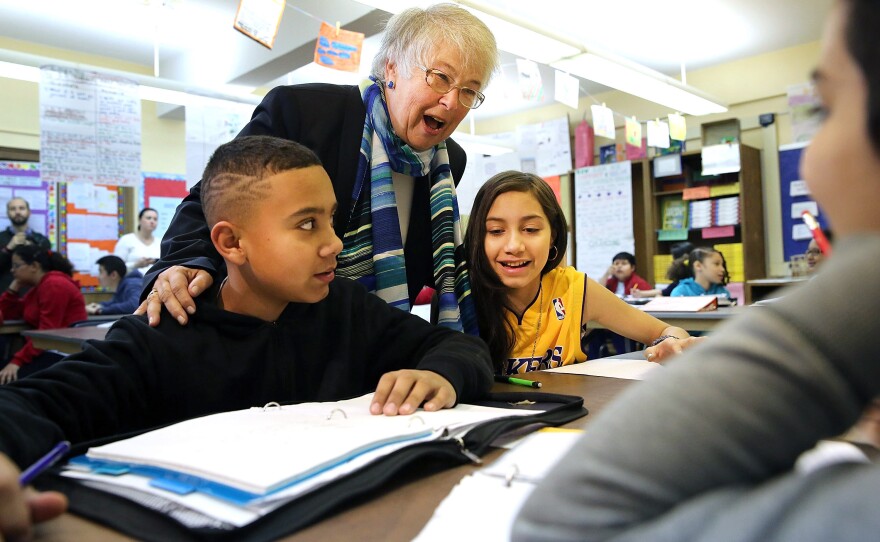So now that students have settled in to the routine of the school year, yet another fall education ritual looms: the parent-teacher conference.
And while there's universal agreement that parent involvement is a good thing, these all-too-short meetings are often frustrating on both sides.
Teachers, and parents, often find them too short and too shallow, too likely to focus on problems, with little time to really get beyond test scores and a few bullet points about the curriculum or homework. And, as children get older, fewer parents tend to show up.
In New York City this fall, the schools are trying to make these meetings richer and more productive. The first step is increasing the number of conferences each year from two to four.
I see it as a time to have real conversations with the adults that we are going to be working with.
School officials are tinkering around with the format and the timing: The first conferences are happening this week — earlier than ever in the school year.
"This is crucial so that parents understand from the beginning of the year what's expected of their children," the city's schools chancellor, Carmen Farina, said this week on WNYC's Brian Lehrer Show. "This is an opportunity for teachers to set out their agenda and for parents to ask the relevant questions."
The first meeting is meant to be a group experience with classroom teachers and other parents. One-on-one talks will come later in the year. (Here are some tips on how to make the most of that one-on-one time.)
"I am really excited about a parent-teacher conference that's mandated at the beginning of the year," says Nick Lawrence, who teaches social studies at East Bronx Academy for the Future, a school for grades 6-12.
"It's less about progress and more about getting to know the parents," he adds. "I see it as a time to have real conversations with the adults that we are going to be working with."
Many parents of his students work more than 80 hours a week, holding down multiple jobs, but that doesn't mean they can't be involved parents, he says.
As an example, he recalls one mother he spoke with on the phone several times a week.
"She could pick up anytime, but she couldn't come in," he explains. "Knowing that allowed me to reach her to talk about her daughter. Those are the kind of things we can figure out at this meeting."
Chancellor Farina says the notion that many parents don't care enough to come is a false one.
"I don't think we've done as good a job at letting parents know we're there to help them," she says. "I refuse to accept the premise that parents won't show up. There are lots of ways to make parents feel welcome."
Patricia Willens is the education editor at WNYC News in New York.
Copyright 2023 WNYC. To see more, visit WNYC. 9(MDAzMjM2NDYzMDEyMzc1Njk5NjAxNzY3OQ001))





